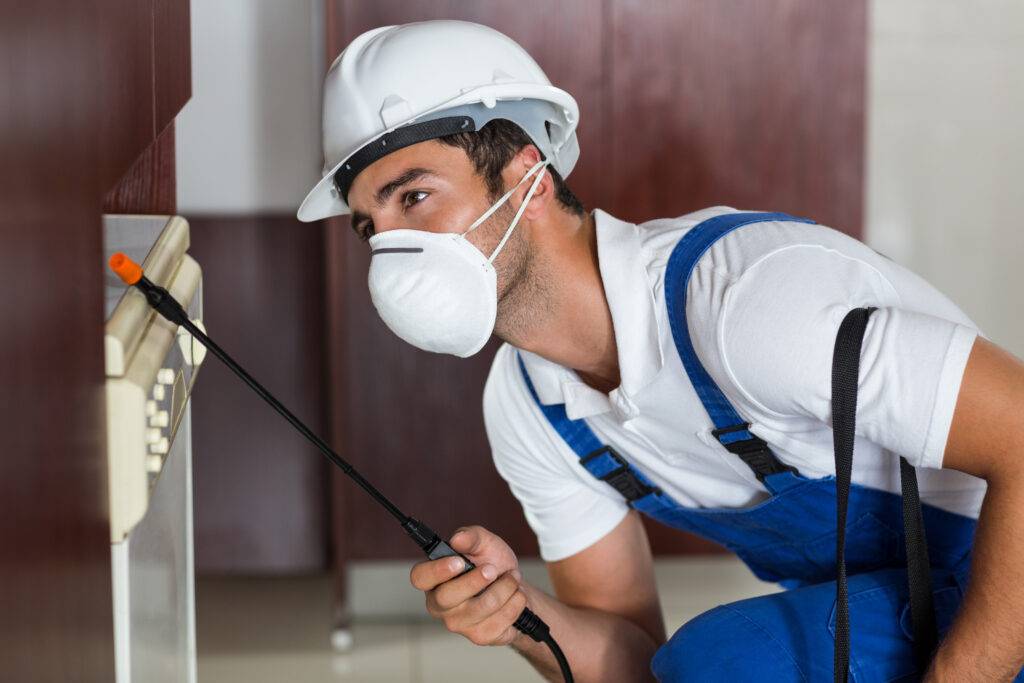Natural Pest Control Methods
When it comes to managing pests in your home, natural methods can be highly effective. These methods involve using environmentally friendly techniques and substances that are safe for both humans and pets. Here are some effective strategies to help you control and prevent common household pests:
1. Seal Entry Points
One of the most important steps in natural pest control is preventing pests from entering your home in the first place. Inspect your home for any cracks or gaps in the walls, floors, and windows. Seal these entry points with caulk or weather stripping to deny pests access to your living spaces.
2. Remove Food and Water Sources
Pests are attracted to food and water, so it’s vital to eliminate these sources to discourage infestations. Store food in airtight containers, clean up spills and crumbs promptly, and fix any leaky pipes or faucets. By denying pests access to these resources, you reduce their incentive to stick around.
3. Use Natural Repellents
Certain scents work as natural repellents for pests. For example, peppermint oil deters ants and spiders, while lavender keeps moths and flies at bay. Spraying these essential oils or leaving cotton balls soaked in them near entry points or problem areas can help repel unwanted pests.
4. Employ Beneficial Insects
Introducing beneficial insects to your garden or indoor plants can assist in controlling common pests. Ladybugs devour aphids, nematodes prey on Japanese beetles, and praying mantises feed on a variety of insects. These natural predators can help maintain a pest-free environment without the need for chemical pesticides.
Common Household Pests
Understanding the behavior, habits, and vulnerabilities of common household pests is crucial in developing an effective pest control strategy. Here are some of the most prevalent pests found in homes and how to deal with them:
Cockroaches
These resilient pests thrive in warm, dark areas and can contaminate food and surfaces. To control cockroaches, keep your home clean, store food properly, fix plumbing issues, and seal cracks. Sticky traps and boric acid can also be effective in reducing their population.
Ants
Ants are social insects that form colonies and infest homes in search of food. To deter ants, maintain a clean environment, store food securely, and seal entry points. Borax mixed with sugar can be used as a natural ant bait, while diatomaceous earth acts as a barrier against their invasion.
Bed Bugs
These notorious pests feed on human blood and can cause irritating bites. To eliminate bed bugs, wash infested bedding with hot water, vacuum thoroughly, and use mattress encasements. Diatomaceous earth, steam treatments, and professional extermination can also help eradicate these persistent pests.
Rodents
Rats and mice seek shelter indoors during colder months. To prevent rodent infestations, seal cracks and holes, store food properly, and keep your surroundings tidy. Snap traps, electronic traps, and bait stations are commonly used to control rodents; however, it’s important to block their entry points as well.
Spiders
While spiders are generally helpful in reducing other pest populations, arachnophobia or venomous species may necessitate control measures. To minimize spiders, remove clutter, regularly dust and vacuum, seal entry points, and utilize natural repellents like essential oils.
If you have a persistent or severe pest problem, it may be necessary to seek professional pest control services. Pest control professionals have the expertise and tools to effectively eliminate pests and provide long-term solutions. Remember, prevention is key to controlling household pests. By maintaining a clean and well-maintained home, sealing entry points, and addressing pest issues promptly, you can minimize the risk of infestations and ensure a pest-free living environment.

